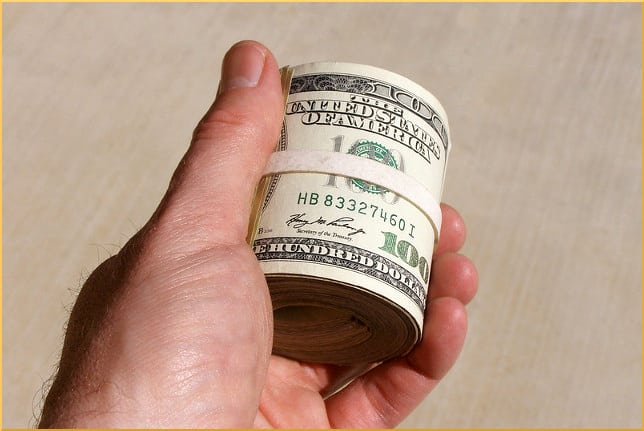
As we have seen from attempts in the United Kingdom to impose a tax on harmful food and drink products, the potential for a mess is enormous. Endless arguments about fairness ensue, enabling corporate lawyers to buy antique classic automobiles and in-ground swimming pools.
Dr. Pretlow always says, “Listen to what overweight kids say. They are the best source of what is going on and the effect of interventions.” Dr. Drew Pinsky, a well-known media figure, credits his father, a family practice physician, with telling him a very wise thing: “Your most important diagnostic instrument is your ear.” (It was on a podcast that this writer unfortunately can’t source right now, but he said it.)
Still, no matter how earnestly we strive to hear, and even despite how successfully we hear, there may be real-world limits on what can be done to help obese kids and prevent as much childhood obesity as possible. Dr. Pretlow has made a very explicit point of listening to thousands of children and youth who have responded to his Weigh2Rock website.
Together they have identified the foods that kids find most difficult to resist. The biggest problem foods are chocolate, fast food, chips, and candy.
The next logical step is to reason that, in the hope of decreasing the ability of people to abuse food as if it were any other harmful drug, like alcohol or tobacco, maybe this stuff should be taxed. Even in the face of agreement with the principle, there is bound to be mass confusion over the parameters of legislation. Here is an argument for treating problem foods like other substances subject to a “sin tax”:
Combining all the different kinds of taxes on alcohol — including ad valorem and sales as well as excise taxes — strengthens the relationship between higher taxes on alcohol and reduced binge drinking.
But wait, what do those terms mean? According to ChangeLabSolutions.org, excise tax operates on a volume basis, for instance, $1 per gallon. Ad valorem tax is a percentage of the retail price. They explain:
In fact, ad valorem taxes are a form of sales tax that are imposed on a specific product, rather than on products generally. Ad valorem taxes are sometimes imposed based on wholesale price (and collected from wholesalers). More commonly, however, they are imposed at the retail level and based on retail price.
Skeptics point out that the phrase “a specific product” is where the trouble starts. Chocolate, fast food, chips, and candy are vast and overlapping territories. Attorneys prosper because it makes a huge difference in terms of corporate profit, that definition of what is or is not a specific product. Other skeptics ask whether taxation accomplishes anything besides giving the government more money to potentially spend on things the people might not want to support.
The guilty
Some authorities lay particular blame on potato chips. But how could this knowledge be reconstituted into legislation? Is it even possible, legally, to pick out one product and blacklist it? Can potato chips be designated in some special category worthy of taxation or even eradication? What about fat-free potato chips, should they be taxed the same? What about corn chips that contain just as much fat as potato chips?
Does the attraction lie in what potato chips are made of, or in how they are made? If someone sold potato chips that were soft and mushy it is doubtful if there would be any takers. So it’s not a potato problem, it’s a crunchy food problem. In which case, the lobby lawyers can say, “Our client, the potato industry, is the victim of discrimination. The government should take some time to study the feasibility of banning all crunchy foods, and get back to us.”
Some see the adoption, here and there, of taxing sugar-sweetened beverages as a great victory. But even that simple-sounding formula has turned out to be endlessly contentious. Now what about snack foods? It seems like trying to tax chocolate, as a substance, would be a nightmare of jurisprudence. If milk is good for kids and they need it, can a ban of chocolate milk from schools be justified if laced-with-chocolate is the only kind that kids will drink?
Sin tax
Our society shows its distaste for the destructive behavior of smoking by setting up programs to help people lose the habit. Also, the State makes it easier for people to quit, by raising tobacco taxes through the roof (while simultaneously doling out corporate welfare to the tobacco conglomerates). Voters are okay with this because they think it only affects people who buy cigarettes. A “sin tax” is only supposed to be for the sinners, right?
But raising the tax on certain kinds of food and drink is different, because everyone who buys the item is affected, even if they are in perfect shape and don’t have an ounce of fat on them. The little sinners have to pay for the big sinners, and that’s not fair.
Your responses and feedback are welcome!
Source: “Alcohol Tax Revenues, Social and Health Costs, & Government Expenditures,” ChangeLabSolutions.org, undated
Photo credit: Chris Potter (ccPixs.com) on Visualhunt/CC BY

 FAQs and Media Requests:
FAQs and Media Requests: 











